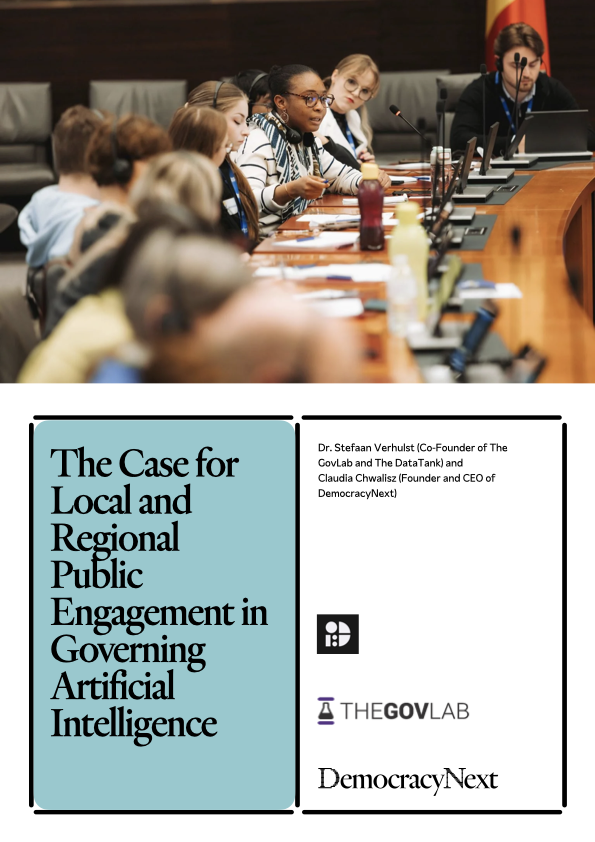
As the Paris AI Action Summit approaches, the world’s attention will once again turn to the urgent questions surrounding how we govern artificial intelligence responsibly. Discussions will inevitably include calls for global coordination and participation, exemplified by several proposals for a Global Citizens’ Assembly on AI. While such initiatives aim to foster inclusivity, the reality is that meaningful deliberation and actionable outcomes often emerge most effectively at the local and regional levels.
Building on earlier reflections in “AI Globalism and AI Localism,” we argue that to govern AI for public benefit, we must prioritise building public engagement capacity closer to the communities where AI systems are deployed. Localised engagement not only ensures relevance to specific cultural, social, and economic contexts but also equips communities with the agency to shape both policy and product development in ways that reflect their needs and values.
While a Global Citizens’ Assembly sounds like a great idea on the surface, there is no public authority with teeth or enforcement mechanisms at that level of governance. The Paris Summit represents an opportunity to rethink existing AI governance frameworks, reorienting them toward an approach that is grounded in lived, local realities and mutually respectful processes of co-creation. Toward that end, in this paper we elaborate on proposals for: local and regional AI assemblies; AI citizens’ assemblies for EU policy; capacity-building programs, and localised data governance models.
Read the paper